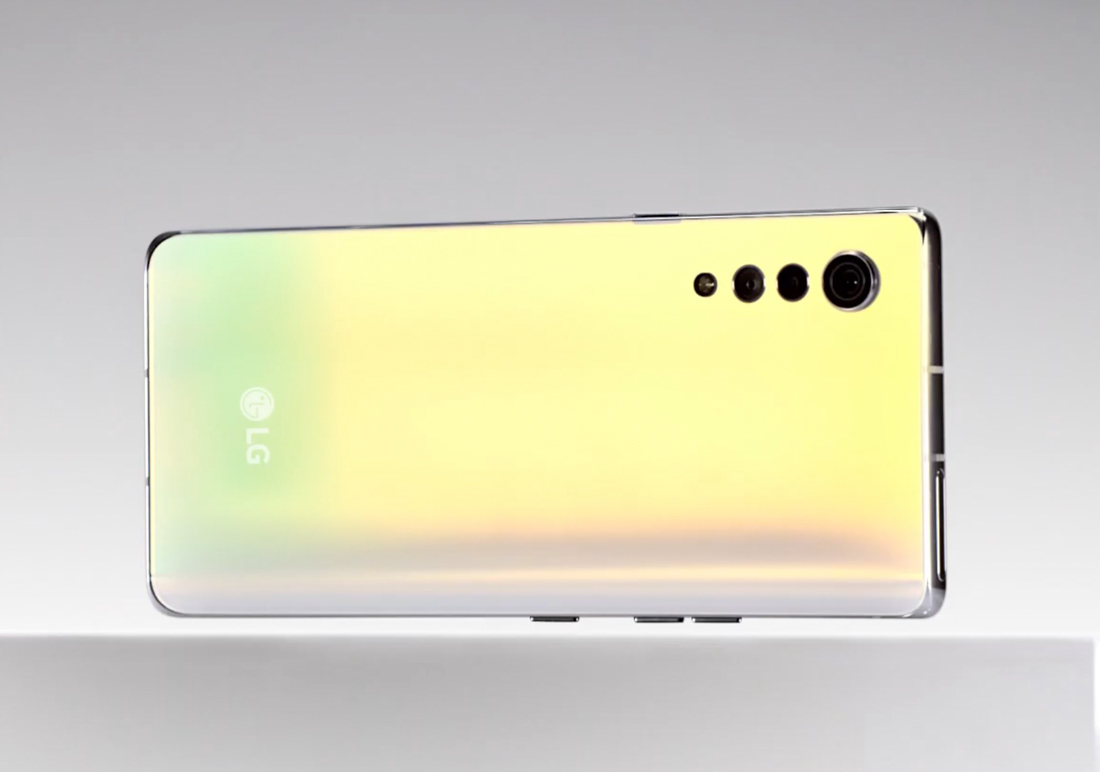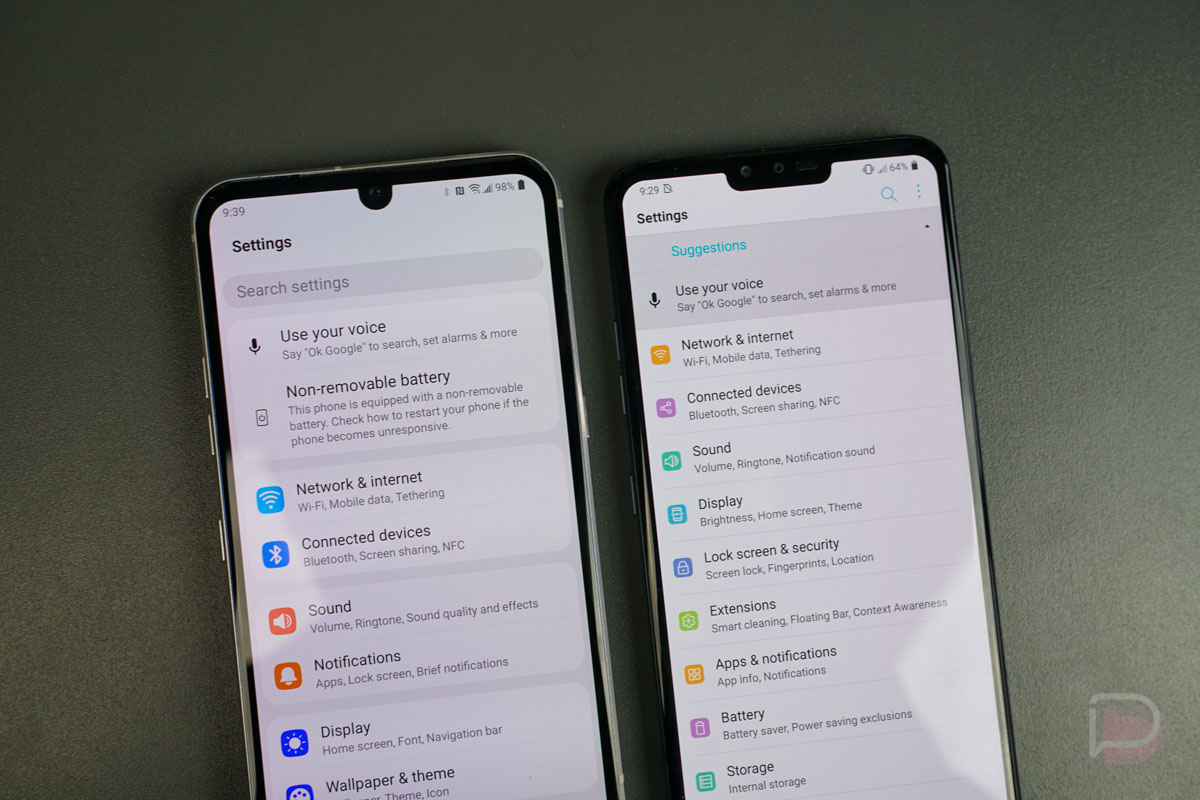Since the launch of the LG G4, LG’s phone business has had little to celebrate, but that’s not because the company releases terrible phones. Sure, there have been missteps, such as the LG G5 with its poorly implemented modular design, but I’d argue that the company’s V series of devices are good phones. Our reviews speak to this, with exception to the latest V60.
In trying to identify a key reason for LG’s lack of success in the mobile phone industry, I can’t help but point to multiple issues we have. The main one, and the point of this article, is software and software updates. Yeah, I could probably spout off on another post on why it’s a bad game plan to focus heavily on what some might call a niche market — no offense, I’m looking at you audiophiles — but the first thing we need to focus on if we’re LG is the software UX (user experience).
LG has detailed some sexy hardware in Velvet. It’s easily their best looking phone in quite some time, at least in my opinion, but it’s going to take more than a raindrop camera system and curved glass to get people off of their Galaxies and Pixels. What we need is a true reinvestment in the software and the support buyers receive after purchase.
Updates, updates, updates
Looking back at how LG flagship devices have been updated, it’s not the worst, but it’s certainly not ideal. Before giving LG examples, let me give you quick comparisons. In Android, you have the companies who update the quickest, such as Google. Essential could also be listed here, but Essential is now dead. Damn. Then you have the 3rd-party OEMs who update quick, but we have to factor in that they have skins and other features they have to make sure don’t break when Google updates something in Android via monthly patches or major version updates. Companies that do well here are OnePlus and Samsung. Samsung has actually been really, really good in the update department for the past couple of years, setting the bar for other 3rd-party manufactures.
OnePlus gets extra special love because they make it ridiculously easy to test the latest pre-release versions of Android via builds that are made publicly available on its forums. As users, you have to love that accessibility. Samsung and LG have also dabbled in betas, which is plenty fun for users.
Looking at the Verizon variant of the LG G8, it was updated with Android 10 in January of this year, which is a step in the right direction compared to the previous year’s LG G7. It took LG a long time to update that phone with Pie. However, looking at the Verizon G8’s current changelog, the phone is still sitting on February’s security patch and it was updated in mid-March. LG is falling behind in the monthly security updates, but a small pass should be provided because we aren’t entirely sure how the COVID-19 pandemic has affected the company’s ability to update devices. The issue I see is, it hasn’t seemed to stop Samsung from updating its devices.
We’ve established that we would like to see a larger investment in the updating of its devices. Even if the next part of our request goes unheard, at least give us better updates, LG. With that being said, LG should really think about doing something with its software.
Destroy LG’s “UX”
Last November, LG teased a new software look, labeled as UX 9.0. Having used UX 9.0 on the new V60, I feel like such a sucker for thinking LG was actually going to change things up. UX 9.0 is little more than a polished up notification pulldown and LG app suite redesign. To see just how much had changed, I booted up an LG device still running Android 8.0 and quickly realized that for the most part, you can hardly tell the difference. To me, this is unacceptable and a lot more needs to be done in this department.
I hate always comparing Samsung to LG, but in software, LG should definitely take a page from their book and either redo the software offering or maybe even more appropriately, kill the “UX” skin entirely. I say nuke it.
Thinking back, this UX software has looked the same since at least the LG G3. I’m over it. It’s boring and such a tired aesthetic. You can look back at our G3 review and see there are still some pieces of the skin lingering in LG’s Android 10 phone. This is what grinds my gears the most with LG devices. It’s like a vicious time warp that sucks me up and spits me back out years in the past. Sure, it’s improved, but not nearly enough for my tastes.
Now, while I’d love to sit here and tell you that LG should just give us stock Android and that would fix everything, I don’t think we can expect LG to do something that drastic. Personally, I wouldn’t mind seeing more of a OnePlus approach, where aesthetically the software looks similar to a stock Android UI, but there are lots of customization options and advanced features built in. LG already offers lots of goodies on its devices, such as its audio stuff (Quad DACs, etc.), not-so-good looking theme options from the LG market, and gesture controls, so it’s not as if the company doesn’t already have things it could use to entice users on the software side. Every company is out here copying each other, so feel free to snag a couple of ideas for yourself, LG. Your users would appreciate it.
LG’s Android 10 UI vs. Android 8 UI
What does LG have to lose right now? In Q2 of last year, LG held just 3% of the global smartphone market, and if things don’t change, the company could easily fall further with the launch of much better devices from its competitors in 2020.
Choice is good
Please, LG, we need you to keep making fun, interesting phones that people want to buy. We recently ran a poll, asking if our readers owned either a Galaxy, OnePlus, or Pixel device. Over 15,000 of you responded, and of that, just 5% said they owned “something else.” LG is hidden in that something else, so we need to start thinking drastic if we’re going to right this ship.
This new Velvet hardware will definitely help, but that’s only part of the solution. A refocusing on the essentials would go a long way for LG. We need an LG phone with super snappy performance, a great camera, great display, sexy hardware, and better software support. We know it’s doable because other companies are achieving this. If they can, LG definitely can. They have many resources.
Come on, LG!



Collapse Show Comments